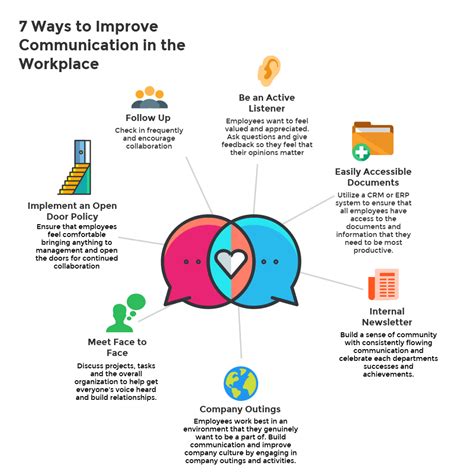Introduction

Effectively communicating a lapse in memory is crucial in professional settings. Whether it’s a meeting, presentation, or email, acknowledging forgetfulness with grace and professionalism can mitigate potential misunderstandings and maintain credibility. This article provides a comprehensive guide to expressing “I forgot” in a manner that upholds your professionalism.
Understanding Memory Lapses
Types of Memory Lapses
- Transient Memory Lapses: Temporary inability to recall information, typically due to distraction or stress.
- Permanent Memory Loss: Irreversible loss of memory due to brain injury or neurodegenerative diseases.
Factors Influencing Memory
- Age
- Stress
- Sleep deprivation
- Medication side effects
- Medical conditions (e.g., dementia, Alzheimer’s disease)
Professional Ways to Say “I Forgot”
Apologize Graciously
- “I apologize for the inconvenience.”
- “I sincerely regret any disruption this oversight may have caused.”
- “Please accept my apologies for any confusion.”
Acknowledge the Lapse
- “I must admit that I have forgotten the relevant details.”
- “I have unfortunately misplaced the necessary information.”
- “I recognize that I did not follow up as I had intended.”
Explain the Reason (Optional)
- If appropriate and relevant: “Unfortunately, a recent medical procedure has caused some temporary memory issues.”
- Avoid excuses or blaming others: “I was distracted by a personal matter.”
Offer Alternatives
- “I will retrieve the information as soon as possible.”
- “Can we schedule a follow-up meeting to gather the necessary details?”
- “I would be happy to connect you with a colleague who may be able to assist.”
Seek Clarification
- “Could you please refresh my memory on the specifics of the task?”
- “I would appreciate it if you could send me the relevant materials for reference.”
- “I am committed to ensuring that this does not happen again.”
Tips and Tricks
- Practice active listening to minimize distractions.
- Take notes and create reminders to support your memory.
- Delegate tasks when possible to reduce cognitive load.
- Seek professional help if memory lapses become frequent or severe.
Common Mistakes to Avoid
- Dismissiveness: “Oh, I just forgot.”
- Defensiveness: “It’s not my fault.”
- Humor: “Well, I’m getting old!”
- Excessive Apologizing: “I’m so sorry. I’m so terrible at remembering things.”
- Delaying Acknowledgement: Attempting to hide or ignore the lapse.
FAQs
Q1: Is it unprofessional to say “I forgot”?
A1: No, as long as it is acknowledged in a respectful and apologetic manner.
Q2: How can I prevent memory lapses?
A2: Implement strategies such as active listening, note-taking, and seeking clarification.
Q3: Are there any medical conditions that can cause memory problems?
A3: Yes, including dementia, Alzheimer’s disease, and certain medications.
Q4: Is it okay to blame others for a memory lapse?
A4: No, it is unprofessional and unethical to shirk responsibility.
Q5: How do I communicate a memory lapse in an email?
A5: Apologize, acknowledge the lapse, offer alternatives, and request clarification.
Q6: What should I do if I repeatedly forget important details?
A6: Seek professional help to determine the underlying cause and develop coping strategies.
Table 1: Memory Boosting Techniques
| Technique | Description |
|---|---|
| Chunking | Breaking large amounts of information into smaller, manageable chunks. |
| Spaced Repetition | Reviewing information at increasing intervals to strengthen memory. |
| Active Recall | Attempting to retrieve information from memory without notes or prompts. |
| Mnemonics | Using rhymes, acronyms, or other memory aids to enhance recall. |
Table 2: Common Causes of Memory Lapses
| Cause | Description |
|---|---|
| Stress | Increased cortisol levels can interfere with memory formation and retrieval. |
| Sleep Deprivation | Insufficient sleep disrupts brain processes essential for memory consolidation. |
| Alcohol Consumption | Excessive alcohol intake can damage brain cells responsible for memory. |
| Medication Side Effects | Certain medications can have memory impairment as a side effect. |
Table 3: Benefits of Acknowledging Memory Lapses
| Benefit | Description |
|---|---|
| Preserves Credibility | Building and maintaining trust by admitting mistakes. |
| Promotes Learning | Identifying and correcting errors provides opportunities for improvement. |
| Facilitates Collaboration | Encouraging colleagues to share information and support each other. |
| Reduces Stress | Addressing forgetfulness head-on can alleviate feelings of guilt or embarrassment. |
Table 4: Professional Phrases to Communicate Memory Lapses
| Phrase | Example |
|---|---|
| “I’m afraid I’ve momentarily forgotten that detail.” | |
| “I apologize, I have misplaced the relevant documentation.” | |
| “Due to an unexpected situation, I cannot currently recall the requested information.” | |
| “I am committed to retrieving the missing data and providing an update as soon as possible.” |
Conclusion
Communicating a memory lapse professionally requires a balance of acknowledging the error, offering alternatives, and seeking support. By employing the strategies outlined in this article, you can navigate these situations with grace and maintain your credibility as a professional. Remember, forgetting is human, but it is how we respond to it that defines our character.
